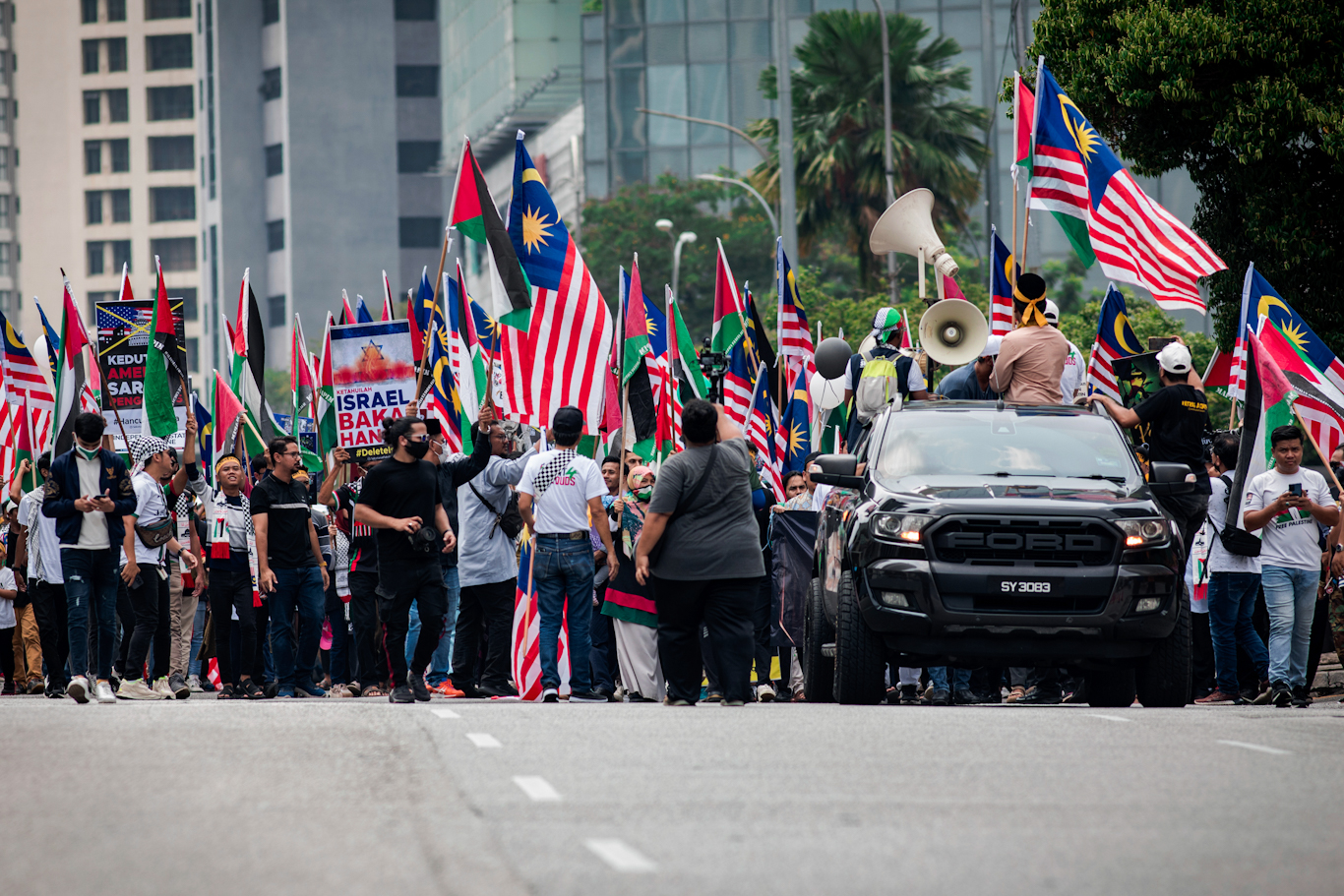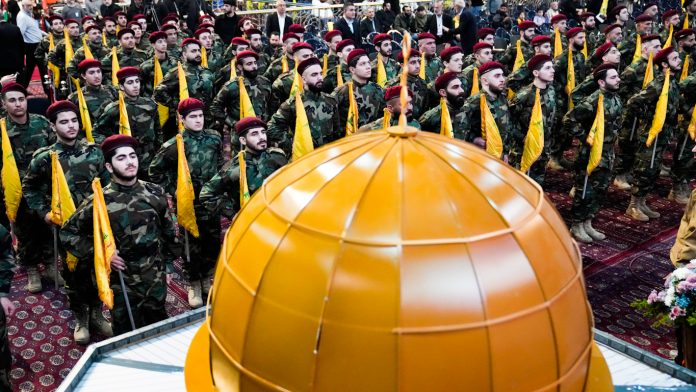When Israel launched a war against the Gaza Strip in August 2022, it declared that its target was the Islamic Jihad only. Indeed, neither Hamas nor the other Gaza-based groups engaged directly in the fighting. Nevertheless, the war then raised more questions than answers.
Israel rarely distinguishes between one Palestinian group and another. For Tel Aviv, any Palestinian Resistance is a form of terrorism or, at best, incitement. Targeting one group and excluding other supposedly ‘terrorist groups’ exposes a degree of Israeli fear in fighting all Palestinian factions in Gaza all at once.
For Israel, wars in Gaza have proved progressively harder with time. For example, Israel’s so-called ‘Protective Edge’ in 2014 was very costly in terms of losing lives among the invading troops. In May 2021, the so-called ‘Breaking Dawn’ was an even bigger flop. That war unified the Palestinians and served as a strategic blow to Israel without considerably advancing Israeli military interests.
Though the Gaza groups provided the Islamic Jihad with logistical support in August 2022, they refrained from directly engaging in the fight. For some Palestinians, this was unexpected and was interpreted by some as indicative of weakness, disunity, and even political opportunism.
Nearly a year later, another war loomed following the release of harrowing footage of Israeli police senselessly beating up peaceful Palestinian worshipers at Al-Aqsa Mosque on the 14th day of the holy month of Ramadan. Again, like in May 2021, Palestinians rose in unison. This time, resistance groups in Gaza and, eventually, Lebanon and Syria fired rockets at Israel first.
Though Israel hit back at various targets, it is evident that Tel Aviv was disinterested in a multi-front war with Palestinians to avoid a repeat of the 2021 fiasco.
The violent and repeated Israeli military raids at Al Aqsa – and limited, though deadly, attacks on Jenin, Nablus, and other parts of the West Bank – were meant to achieve political capital for the embattled government of Benjamin Netanyahu. But this strategy could only succeed if Israel keeps the violence confined to specific, isolated regions.
Large-scale and protracted military operations have proven useless for Israel in recent years. It has repeatedly failed in Gaza, as in South Lebanon. The unavoidable change of strategy was also costly from the Israeli viewpoint, as it empowered the Palestinian Resistance and denied Israel its so-called deterrence capabilities.
Indeed, the political discourse emanating from Israel recently is quite unprecedented. For example, following a security briefing with Netanyahu on April 9, Israel’s opposition leader Yair Lapid left with ominous words. “I arrived at the briefing with Netanyahu worried, and I left even more worried.”
“What our enemies see in front of them, in all arenas, is an incompetent government … We’re losing our deterrence,” he added. The Times of Israel also quoted Lapid as saying, “Israel is losing the support of the United States and the international community.”
Though Israeli politics is inherently divisive, the country’s politicians have always managed to unify around ‘security.’ Israelis often exhibited unity during wars, and ideological divides seemed largely irrelevant. The fact that Lapid would publicly expose Israel’s weaknesses for political gains further highlights the deterioration of Tel Aviv’s political front.
But more dangerous for Israel is the loss of deterrence.

In an article published in the Jerusalem Post on April 11, Yonah Jeremy Bob highlighted another truth: “Israel no longer decides when wars are fought.”
He writes: “One could have concluded this from the 2014 and May 2021 Gaza wars that Israel stumbled into, and which Hamas used to score various public relations points … but now Hamas learned in a more systematic way … how to instigate its own ring of fire around Jerusalem.”
The writer’s hyped language aside, he is not wrong. The battle between Israel and Palestinian Resistance groups has been primarily centered around timing. Israel did not ‘stumble’ into a war between 2014 and 2021, but it has not been able to control the duration and political discourse around these wars. Though thousands of Palestinians were killed in what seemed like one-sided Israeli military campaigns, these conflicts almost always resulted in a public relations disaster for Tel Aviv abroad and further destabilized an already shaky home front.
This explains, at least in part, why Palestinians were keen not to expand the August 2022 war, which was also entirely initiated by Israel, while taking the initiative by firing rockets at Israel starting on April 5. The latest Palestinian action forced Israel to engage militarily on several fronts – Gaza, Lebanon, Syria and, arguably, the West Bank.
Throughout its 75 years of military conflict with Palestinians and Arabs, Israel’s success on the battlefield has been predicated mainly on the runaway military, logistical and financial support from its Western allies and the disunity of its Arab enemies. This has allowed Israel to win wars on multiple fronts, with the 1967 war as the primary, possibly, last example.
Since then, and especially following considerable Arab resistance in the 1973 war, Israel shifted to different types of military conflicts: strengthening its occupation in the West Bank, Gaza and East Jerusalem while launching massive wars at singular fronts – for example, Lebanon 1982.
The Israeli retreat from Lebanon in 2000, and the utter failure to re-invading parts of the country in 2006, brought Israel’s military ambitions in Lebanon to a complete halt.
Then, Israel turned to Gaza, launching one devastating war after the other, starting in 2008, only to discover that its military options in the besieged Strip are now as limited as that of Lebanon.
For Lapid and other Israelis, the future of Israel’s ‘deterrence’ is now facing an unprecedented challenge. If the Israeli military cannot operate at ease and at its chosen time, Tel Aviv would lose its ‘military edge,’ a vulnerability that Israel has rarely faced before.
While Israeli politicians and military strategists are openly fighting over who has cost Israel its precious’ deterrence,’ very few seem willing to consider that Israel’s best chance at survival is peacefully co-existing with Palestinians according to the international principles of justice and equality. This obvious fact continues to elude Israel after decades of a violent birth and troubled existence.
Feature photo | Hezbollah fighters parade in front of a replica of the Dome of the Rock Mosque during a rally to mark Jerusalem day, in a southern suburb of Beirut, Lebanon, April 14, 2023. Hussein Malla | AP
Dr. Ramzy Baroud is a widely published and translated author, an internationally syndicated columnist and editor of PalestineChronicle.com. His latest book is The Last Earth: A Palestinian Story (Pluto Press, 2018). He earned a Ph.D. in Palestine Studies from the University of Exeter (2015), and was a Non-Resident Scholar at Orfalea Center for Global and International Studies, UCSB. Visit his website at www.ramzybaroud.net.
The post The Israel-Palestine Conflict: How the Palestinian Resistance Is Changing the Equation appeared first on MintPress News.
